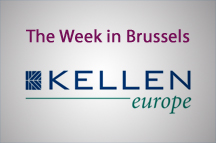 The European Union’s energy policy needs to balance three potentially conflicting interests. They are: security, sustainability and affordability of electric energy.
The European Union’s energy policy needs to balance three potentially conflicting interests. They are: security, sustainability and affordability of electric energy.
The World Energy Council explained this trilemma for Europe at the conference of the European Network of Transmission System Operators for Electricity (ENTSO-E). An important part of the trilemma is how to secure European competitiveness while integrating renewable energy into the market. We could make the case for a radical review of the EU’s energy system, in particular now that the European Commission has organised itself around the so-called Energy Union, under the coordination of Commission’s Vice-President Maroš ŠefÄoviÄ.
Why are we facing this trilemma? There is increased generation of renewable energy, which is an intermittent supply: the sun is not always shining and the wind is not always blowing. It is clear that increasing renewables will create more disturbances in the grid and, if not well managed, lead to blackouts or curtailing of (not using) renewable energy. Policy-makers are looking for new solutions.

Technical solutions were presented at the Energy Storage Global Conference 2014 between 19-21 November. There is a range of options, or rather a combination thereof: one is increasing the interconnection of electricity grids between the member states. Late October the Council already agreed that this interconnection should increase from 10 to 15%. It would create better electricity balancing in the EU and open up competition on the supply side.
The installation of energy storage at central and decentralised level of the grid will deliver benefits to consumers and users at residential, commercial and grid level. One future market design includes that some of these users want more “self-consumption” rather than feeding the surplus into the grid.
Utilities are also expected to provide more demand-side services. Storage solutions come, for example, from batteries that provide frequency regulation, stability of the grid and storage with direct benefits for the various users, especially those who produce renewable energy, but find feed-in less attractive. Battery storage can be introduced quickly when compared to transmission lines or hydro storage in lakes, which may take one or two decades to approve and install.

Finally, Commission President Jean-Claude Juncker is expected to present his €300 billion plan to the European Parliament next week, and then to EU leaders in December. Let’s devote some of this money to help solve this trilemma, to build an EU energy market, and to underwrite more renewable energy integration as well as manufacture and install energy storage in Europe.












